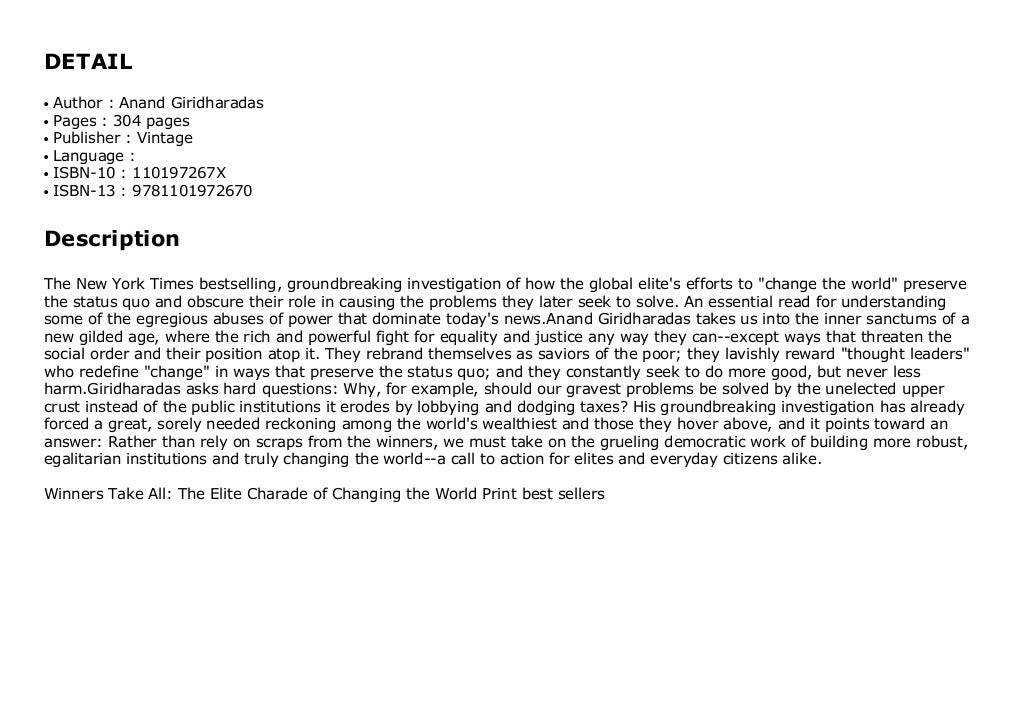
In his disdain for thought leadership, Giridharadas argues that because they are not challenging the elites on systemic issues that plague our world, they instead cozy up, placate, become non-threatening and are indeed part of the problem. Citing a comment from Tufts University professor Daniel Drezner, “Public intellectuals argue with each other in the pages of books and magazines thought leaders give TED talks that leave little space for criticism or rebuttal and emphasize hopeful solutions over systemic change.” He contrasts thought leaders with public intellectuals.


Giridharadas also takes a swipe at “thought leaders,” a term I have loathed for decades. Are they part of the problem or are they trying to fix the problem? Is it both? And it forced me to think about certain conferences, events, think tanks and festivals. It made me question how “purpose-driven” some organizations are. It made me question a few things in my own professional life. How did we get here, and why does it remain this way? Not so much a book on answers, Winners Take All is a book solely devoted to facts, insights and questions on the status quo. In a study published in late 2018 titled, “A Guide to Statistics on Historical Trends in Income Inequality,” the report authors state, “Data from a variety of sources contribute to this broad picture of strong growth and shared prosperity for the early postwar period, followed by slower growth and growing inequality since the 1970s.” We need to look no further than the Center on Budget and Policy Priorities (CBPP) to corroborate the findings of Giridharadas. He writes, “We must decide whether, in the name of ascendant values such as efficiency and scale, we are willing to allow democratic purpose to be usurped by private actors who often genuinely aspire to improve things but, first things first, seek to protect themselves.” Indeed, he suggests that they may be the biggest benefactors of the divide.Ĭiting example after example, Giridharadas’s book details how the 1% have cleverly crafted a system that continues to benefit them rather than society on the whole.

Giridharadas meticulously breaks down how the plutocratic class are perhaps the biggest part of the problem.


 0 kommentar(er)
0 kommentar(er)
